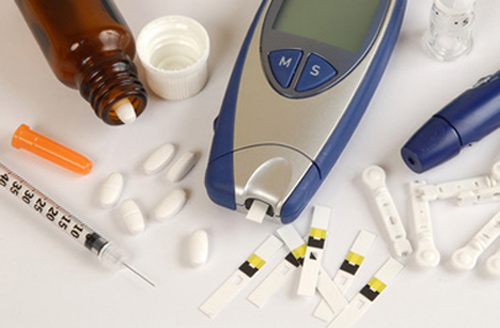Diabetes can make it hard to manage how much glucose is in your blood. A majority of people takes medicines to help maintain their blood sugar level to stay healthy.
Diabetes- A serious condition
Diabetes can cause various life-threatening diseases such as stroke, blindness, nerve damage, kidney disease, heart attack, and other serious health issues. This is why it is important for a diabetic patient to receive treatment at the right time before it gets too late. Treatment for diabetes care can help prevent or slow the progression of these serious illnesses.

Also Read: Understanding Osteoporosis
Control Your Diabetes
There are different kinds of diabetes medicines available to manage sugar levels in your bloodstream. Each type affects your body in a different way. Some anti-diabetic agents are meant to be taken orally as pills while others are available in the form of injection. Some diabetic patients need to use medicines daily. When you need to take a pill directly depends on your health and the type of diabetes you have whether it is type I, type II, or gestational diabetes. Your health care specialist is the only person who can tell you when you need to take medicine to treat your diabetes.
- Patients with type I diabetes– People who have type I diabetes makes very little or no insulin in their bodies. They must take insulin on a regular basis to stay alive.
- Type II diabetes– People who are suffering from type II diabetes do not make enough insulin or their bodies do not use it well enough. A majority of people with type II diabetes take tablets or other antidiabetic agents that are injected into the body. While the others need insulin to help manage their diabetes.
- Gestational diabetes-Some women develop diabetes for the first time when they conceive or become pregnant. This is called gestational diabetes and develops only in women during pregnancy. Some women with gestational diabetes require insulin shots to maintain their sugar at healthy levels.
Diabetes Medications
Different types of medicines are prescribed to treat type II diabetes. Some of them are as given below:
Meglitinides- These are available in the form of pills to help your body make more insulin around mealtime. Common side effects include too low blood sugar.
Alpha-glucosidase inhibitors– These medications work to digest sugar more slowly and help in diabetes treatment. These are meant to be swallowed with a glass of water. The common side effects of the medication are diarrhea, gas, stomach pain, and abnormal liver tests.
Before beginning the treatment with Alpha-glycosidase inhibitors, tell your physician if you have, liver, or kidney problems. Also, inform about your pregnancy status.
Thiazolidinediones– Drugs like pioglitazone and rosiglitazone are formulated to help the cells in your body to use stored glucose. Before taking these tablets, you must inform about your history of heart disease. Also, inform if you are a post-menopausal, women who does not have menses regularly or not at all. Thiazolidinediones may increase your chance of becoming pregnant. You need to discuss with your physician about contraceptive measures while taking these medications.
These medications can cause a fracture, therefore it is important to talk with your physician about the issue. Some common side effects of the medicine are fluid retention, weight gain, anemia, upper respiratory tract infection, and heart failure.
DPP-4 inhibitors- These include medications like sitagliptin, saxagliptin, linagliptin, and alogliptin. All these help your body release more insulin. These medications can cause severe stomach pain and vomiting. This can be considered as a serious side effect of the medicine. Common adverse effects related to the usage of medicine include a headache, upper respiratory tract infection, and headache.
Also Read: Ebola Virus Disease (EVD) – Cause, Prevention and Treatment
To know about the best diabetes medication that suits your condition, contact your physician. After evaluating your condition, he/she will determine the diabetes treatment that will best suit you.




